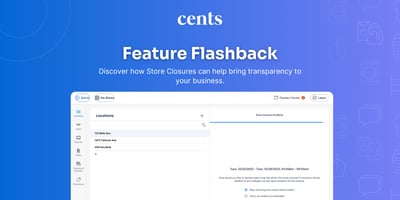In an industry where breaking barriers may not be as common, Celsious has redefined what a laundry business can be. Co-Owners and Sisters, Theresa and Corinna Williams entered the laundry world as complete outsiders and turned that perspective into their greatest advantage.
In their North Williamsburg location, they've built a distinctive brand that prioritizes sustainability, customer experience, and authentic community connection. Their journey from a self-service laundromat to a drop-off delivery powerhouse offers valuable lessons for any operator looking to differentiate their business.
In this webinar, we sat down with the Williams sisters to explore how they used Cents to help built Celsious into a neighborhood institution and industry standout.
The Pandemic Pivot That Changed Everything
When COVID hit in 2020, many laundry businesses had to change operations to adapt. Celsious made the bold decision that seemed counterintuitive but they abandoned their popular self-service model entirely.
"We switched from self service to what we then called wash dry bag," Corinna explained. "We had lines out the door because people had the option between doing the wash dry bag with us or washing in their sink in the bathtub."
What started as a pandemic reaction became a revelation. Corinna and Theresa discovered that handling customers' laundry themselves was actually more efficient than managing self-service operations.
"It was much more efficient to do the laundry ourselves than having people throw something in the washer, walk away, having to move it out of the washer," Corinna said. "We were so busy that we actually decided to stay with a drop off only model."
Building a Brand That Breaks Industry Norms
Celsious didn't just change their service model—they reimagined what a laundry brand could look like. Working with their design backgrounds, the sisters created a visual identity that deliberately defied expectations.
"The idea from the get go was to do something unexpected, so to not kind of go with the standard color scheme that you would imagine for a laundromat, which is often like a bluish white," Theresa shared.
Instead, they chose warm yellow-orange tones that felt friendly and welcoming—everything traditional laundromats weren't. But their branding went deeper than colors.
"A lot of the brand voice is just authentic speaking," Corinna explained. "The way that we train our employees, the relationships that we have with them translates to the customer relationship as well."
Sustainability as Competitive Advantage
Perhaps Celsious's boldest move was banning dryer sheets and fabric softener—a decision that seemed risky but opened up an entirely new customer segment.
"We ended up banning them, and that brought us a whole new customer segment of people who were so highly allergic to fragrances and other ingredients that they could not use other self-service laundromats," Corinna said.
The key was education and conversation with customers before making changes. "You can actually just talk to your customers... literally have this conversation with your customers," Corinna noted, emphasizing how direct communication helped them navigate controversial decisions.
The Power of Location and Smart Marketing
Celsious's success isn't just only great service, it's equally about understanding their market and how clean sustainable products can be marketed. Located two blocks from the L train with high foot traffic, they've built their marketing around their tech-savvy, younger demographic.
Their most effective marketing shift? Moving from email to text messages. "Hugely, hugely" more effective, according to Corinna, especially for flash promos that help control daily workflow. They use Cents Accelerate for their marketing abilities and are able to reach their customers in a whole new way.
They also use their distinct branding through unique delivery methods—including a custom cargo bike that holds 400 pounds of laundry and serves as mobile advertising throughout Brooklyn.
The Future: Expanding While Staying Focused
Now, Celsious is launching wet cleaning services as a sustainable alternative to traditional dry cleaning, using their existing customer base as beta testers. They've learned to focus on what they do best rather than trying to be everything to everyone—a lesson learned when they closed their café component.
"We need to really focus on what we're good at. And that's taking care of our community's laundry, and that's how we are of service to our community," Corinna reflected.
For laundry operators looking to differentiate their businesses, Celsious proves that success comes from authentic branding, willingness to pivot, and deep understanding of your specific customer base. Sometimes the best strategy is doing what you want, but doing it exceptionally well.
.png?width=2196&height=2196&name=OS%20(1).png)

-3.png?width=224&height=213&name=Accelerate%20(2)-3.png)







